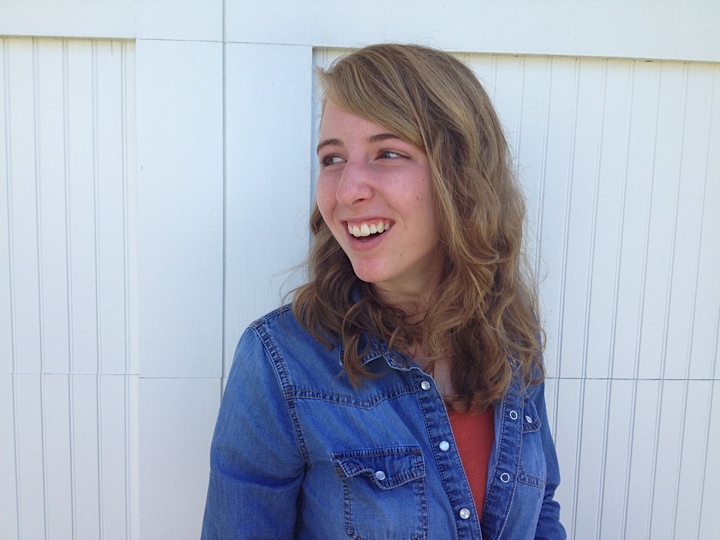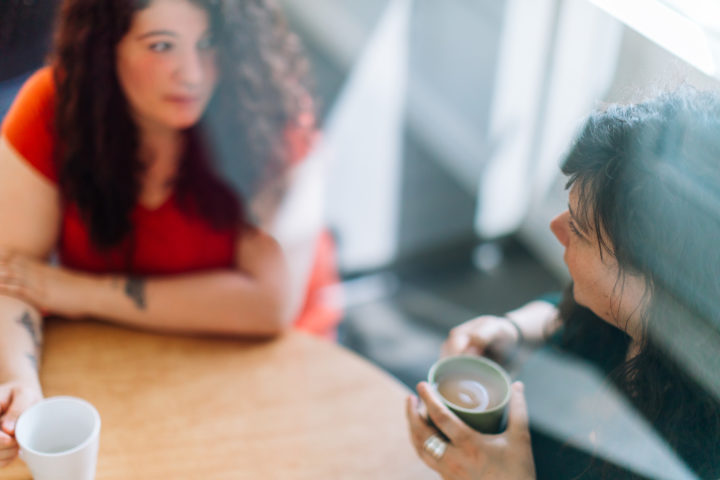Twitch is a documentary that follows 18-year-old Kirsten Powers as she undergoes a genetic test for Huntington’s disease.
Knowing these test results could change her life forever, she must respond with courage, bravery, and grace. The positive spirit Powers carries throughout the documentary leaves audiences inspired.
I had the amazing opportunity to be present at one of the documentary screenings and watch Twtich. By the end of the documentary, I was in tears. Recently, I had to exciting experience to hear more about Powers’ creative process and journey!
Your amazing documentary Twitch definitely leaves an impact on everyone who gets the opportunity to see it. Tell us more about the film and what viewers can expect.
Kristen Powers: Twitch follows my 18-year-old self as I undergo genetic testing for Huntington’s disease, an illness that personally affects my family. Throughout the film, I take you through the genetic testing process, discuss the challenges and science of Huntington’s disease, and challenge you to consider the implications of knowing our genetic fate.
What motivated you to create this film?
KP: When I was researching the process of genetic testing, I found very few stories of young people who had gone through the process. Furthermore, much of the material available online was dry and difficult to read. I had always admired the art of documentary film and thought this was a great opportunity to show others the genetic testing process while showing people the real life impacts of such a decision.
How has creating the documentary impacted you?
KP: The documentary has changed my life. Not only did it catapult me into the world of filmmaking as a 17-year-old, but it soon became who I am. This film is a reflection of four years of my life. My friends, family, and peers all know me as “that girl who made Twitch.”
This film has opened numerous doors for me, whether it involves touring the world or meeting amazing people who are also interested in genetics and film. It also proved to me that people do care about Huntington’s disease, which can be hard to believe sometimes when you grow up in a world that doesn’t often recognize its existence.
The documentary has such a personal story line. How do you feel when you watch the film?
KP: It wasn’t difficult for me to watch the film alone. However, I became very self-conscious upon showing it to family and friends who knew me and the people in the film. I wanted to do my best to accurately portray my family’s experiences so it was scary to have it at a stage where it could finally be judged for that. Once the entirety of my family saw the film, their positive reactions and support made me far more comfortable sharing it with others.
What is your advice for someone who may be going through something similar to you?
KP: Do not go through this process alone. For those of us who have grown up in families with devastating genetic conditions, it is tempted to want to “tough it out” and test in secret as to not hurt your close ones.
More often than not, those loved ones want to be there to support you and you may find that it is exactly what you need.
How has the documentary impacted others?
KP: I can cite two examples that I believe sum it up well.
First of all, I had one woman come up to me after a screening, thanking me for making the film. While she was personally affected by the disease, she told me it was difficult to talk about Huntington’s with her loved ones because of the debilitating stigma that surrounds it. However, by bringing her family to the screening and having them watch a third party’s story with no connection to their own, they were able to learn and talk about the issues in a way they never were able to do before.
Secondly, I had a genetic counselor from the NIH tell me that this film is what every genetic counseling student must see before they enter the field. For many in the medical field, it is easy to treat a genetic test result for Huntington’s Disease as an average day. Twitch reminds these individuals that, in reality, these test results are often the most life changing moments for the individual and the family receiving the results.
Tell us a little bit about the documentary’s success since its launched. What have been some interesting experiences you have had because of this film?
KP: One of my bucket list items is to travel to all 7 continents. With the help of Twitch, I am two continents shy from that goal. In fact, Twitch has made it to Asia before I have. Over the past year or so, Twitch has reached over 5,000 individuals in over 30 cities across 6 continents. Now that the film is available for purchase, over 10 universities and counting have incorporated Twitch as part of their academic libraries.
This film allowed me to travel the world and meet amazing people doing great work from Cape Town to Santiago to Iowa City. It has been such a wild ride.
What’s your advice for a young change-maker who is also into film-making?
KP: As someone with absolutely no film making background, I sought out the experts. I found producers, directors, camera operators, non profit executives…you name it.
Instead of guessing, I asked them how they made their film, how they marketed their work, and how they engaged people in their cause. As a young person, you’ll find that many adults are willing to help those young’uns who show ambition and thoughtfulness in their project. Go forth and ask somebody.
What are your goals for the future of the documentary?
KP: My ultimate goal would be that Twitch sparks conversations about genetic testing and Huntington’s disease for decades. It would be awesome to use this film as a historical relic when Huntington’s disease is cured.
As for logistical goals, I want this film available to every student in every high school and university in the world. We break down stigma and misunderstanding through education. If every student who wanted to learn about neurological conditions and genetic testings could have access to the film, that would be my dream.
How can others watch the documentary or host a screening?
KP: Twitch is available online through platforms such as Vimeo OnDemand, iTunes, Google Play, and Amazon. If you are a university student or faculty member and want the film in your library, please reach out to me at kristen_powers(at)ymail.com.




comments